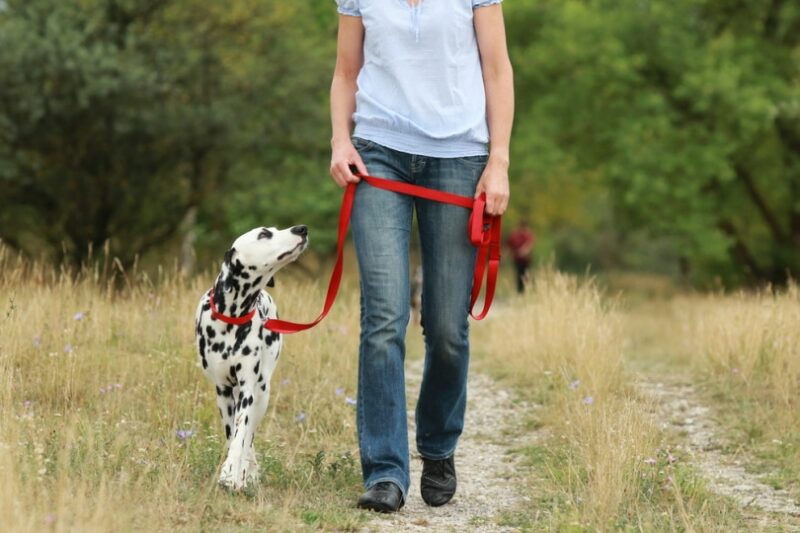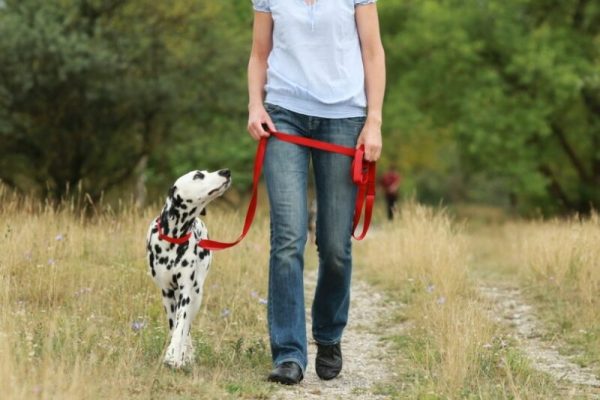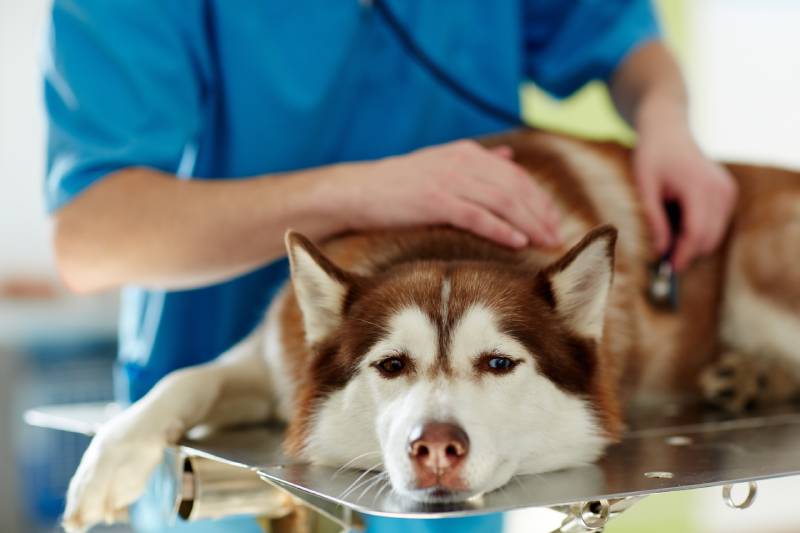Many dog owners can attest to the excitement that follows when they pick up a leash and their pup realizes it’s walk time! Walking is not only a great form of exercise, it also offers important mental benefits for dogs as well. A study has even shown that performing regular scent work promotes a more optimistic state of mind in dogs!1 In addition to bathroom breaks, aim to get your dog out for a walk at least once daily.
How Long Does My Dog Need to Walk?
This depends on a lot of different factors. For example, a senior great dane will probably be happy with a slow saunter around the block, while an energetic young border collie might hike for two hours and still be ready for more!
Your veterinarian will be able to offer specific guidance for your particular pup—taking their age, breed, and overall health into consideration.
Keep in mind that walks don’t have to be the same every single day. While it is important to prioritize walks for your dog, don’t worry about being super regimented. Schedules change, and weather can also be a factor. Likewise, walks need to be kept short when it’s excessively hot or cold outside.
Hiring a dog walker may be a good option if you have an energetic dog, but you don’t always have time for a long walk. You can also check out these ways to provide enrichment on days that opportunities for physical exercise may be limited.
A Note About Walking Puppies
Have you ever watched a puppy fall asleep in the middle of a play session? Their bodies are very good at telling them when to take a break! Puppies should never be encouraged (or forced) to keep exercising when they are tired.
Expect that walks will be short, especially at first, while your puppy is getting used to being on a leash. Walks at this age are less about exercise, and more about training and socialization! Always remember to stop if your puppy seems to be getting tired.
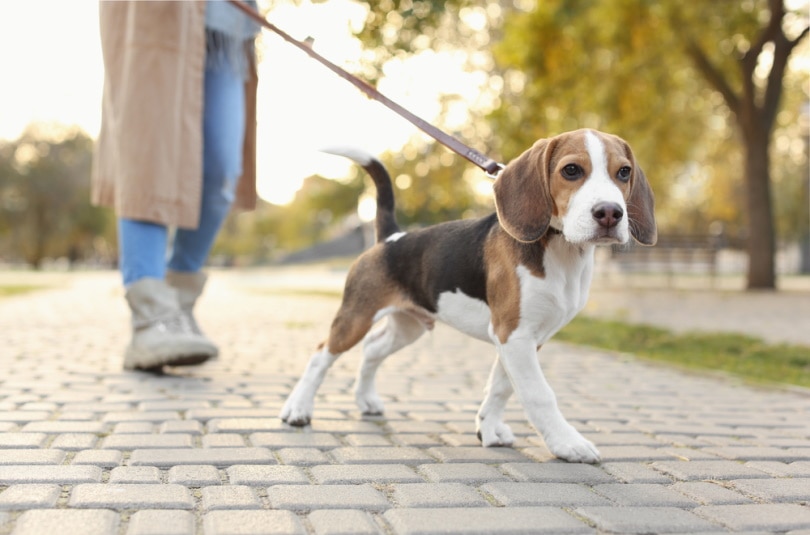
The Importance of Sniffing on Walks
While it can be a little annoying when your dog wants to stop and sniff everything, try to indulge them at least some of the time. When given free choice on a walk, it is estimated that dogs spend about a third of their time sniffing!
Walks are your dog’s chance to get out of the house and see what’s going on in the neighborhood. Consider varying your route to provide novelty, and check out this article for ideas on how to take your dog for a special “sniff walk”.
How Do I Know if My Dog is Getting Enough Exercise?
Generally, calm behavior and ability to settle at home are good indications that a dog’s exercise and mental stimulation needs are being met. A dog who isn’t getting enough of these things may display destructive behavior, restlessness, or excessive barking.
Walks alone may not be enough for high-energy dogs and working breeds, who often also require high levels of mental stimulation. For these types of dogs, consider providing outlets for the natural behavior(s) your dog is driven to perform. Examples include scent work, retrieving, herding, and agility.
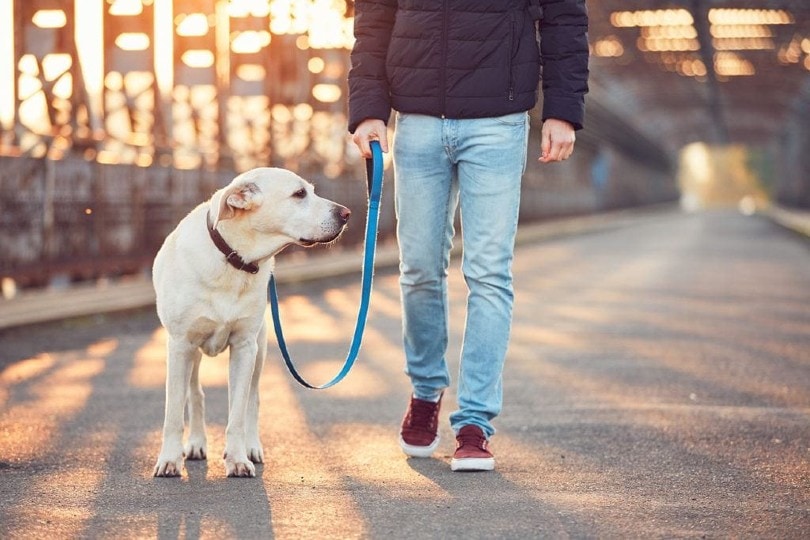
Summing Up
Daily walks contribute greatly to your dog’s physical and emotional well-being. There are many benefits to consider, some of which include:
- Helping your dog maintain a healthy body weight, which may reduce their risk of certain diseases and help them live longer.
- Providing important mental stimulation.
- Creating opportunities for social interactions with people and other dogs.
- Strengthening the bond between you and your pup.
Remember to check with your veterinarian before changing your dog’s exercise routine, and never force them to keep exercising if they seem tired.
Related Reads:
- National Walk Your Dog Day: Here’s How It’s Celebrated
- What Happens if I Don’t Take My Dog for a Walk? (Vet Answer)
Featured Image Credit: absolutimages, Shutterstock

